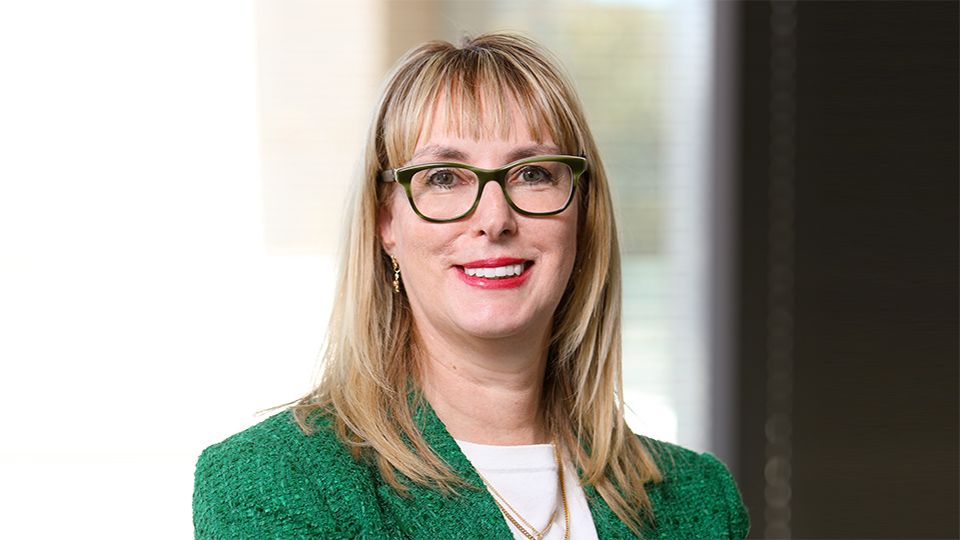COP28 is split into two camps; those that are concerned about where it’s being held, the COP presidency and the role of the oil and gas industry, and those that think we need to get these very people involved, according to Wendy Dobson, expert in responsible business, sustainability, and climate change, and senior managing director at FTI Consulting.
Dobson, who is speaking at the event in Dubai, said while it is interesting to have “new actors” from the oil and gas industry at the event having conversations around the use of renewables, she isn’t expecting this COP to be one remembered for adopting the term ‘phasing out of fossil fuels.
See also: – COP28 Finance Day: Record climate funding, debt relief and calls for collaboration
Watch the video for the full interview, a transcript is below.
NK: Hello and welcome to this COP28 video. Today I’m joined by Wendy from FTI Consulting. Thank you so much for your time today, Wendy.
WD: It’s a pleasure.
NK: And how are things on the ground in Dubai? What’s the atmosphere like there?
WD: I was at COP27 in Sharm el-Sheikh last year, and it feels this year that it’s a lot calmer. It’s very well organised and it’s very spacious. It doesn’t feel the same intensity. Last year felt very frenetic, this doesn’t have that same feeling to it this year. There’s quite a lot of people around going to different events.
There’s lots of events happening, lots of talks going on, lots of exhibitions, pavilions. There’s a lot of people around, but because it’s spread out, it doesn’t feel like everyone’s on top of each other as much. And people just seem to be having lots of conversations around why they’re here, what they’re doing, what they think is going to come out of COP at the end of the week.
NK: I want to ask about some of the announcements that we’ve seen so far. We’ve had the big pledges to the loss and damage fund. There’s been quite a big focus on developing nations in particular, there was the Taskforce for Net Zero Policy and lots of other things going on. There’s been quite a bit over the weekend. What’s everyone really focused on?
WD: Well, there’s been quite a lot of buzz about the loss and damage fund. I’ve actually just come from a panel discussion that’s looking at the role of the insurance industry in relation to loss and damage made during that. So that seems to have been received very well, although people are concerned that the amounts that have been pledged for that are really not enough.
But they do feel like it’s a really excellent step in the right direction and was a good way to open this year’s conference. There’s been quite a lot of discussion around the decarbonisation pledges from the oil and gas industry. And I guess there’s two camps; there’s some who are perhaps quite cynical about this, saying it’s dealing with Scope 1 and 2 emissions of those companies, and not really a game changer.
But there are others that are more hopeful and thinking this is the beginning of something. It will create pressure on more oil majors to become part of that discussion. And, very importantly, it includes not just carbon emissions but emissions related, for example, to methane.
I think generally the sense of this definitely two camps here at COP28; those that really are concerned about where it’s being held, the COP presidency and the role of the oil and gas industry and those that think we need to get those people involved. We need to have everyone at the table and more hopeful that these things are actually all moving us in the right direction.
NK: Yes, absolutely. I’m definitely getting that feel coming through as well with some of the press releases and announcements that have come out as well. There is this big focus and talk around the phase out of fossil fuels, the wording around it. Do you do you think we’ll get to where we need to be by the end of this COP?
WD: I don’t think we will at this COP. I think there are some key players who are not going to agree to the wording around ‘phase out’. We may get ‘phase down’ or ‘unabated’ use of fossil fuels or some finessing of that language. But I’m not I’m not expecting ‘phase out’ language to be included, unfortunately.
NK: Yes, that is unfortunate. But what are you optimistic about? What do you think this COP will be remembered for based on what we’ve heard so far?
WD: I think that it’s bringing a lot of new actors into the discussions and conversations. And again, while that might be controversial, it’s interesting to have ExxonMobil actually come here to see what’s happening, to talk to people on the ground, to see the scale of this, just how many opportunities there are around renewable energy, around just transition.
I think what we’re seeing is also a lot of focus on innovation, and that can be around climate finance or it can be around different kinds of technology solutions to deal with the transition, to deal with adaptation. But this is one of those in-between COPs. I think it’s not one of the big political COPs that take place every five years.
This is just, I think, a ‘work in progress’ COP more than anything else.
NK: Okay, fantastic. Well, thank you very much for taking the time to share your insights with us from on the ground.








